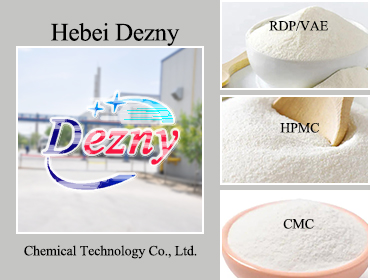
 2024-07-04- readings
2024-07-04- readings1. Basic Characteristics of HPMC
Hydroxypropyl Methylcellulose (HPMC) is a non-ionic cellulose ether with multiple functions such as thickening, bonding, dispersing, emulsifying, film-forming, suspending, hygroscopic, gelling and water retention. Due to its excellent physical and chemical properties, HPMC is widely used in building materials, especially in gypsum products.
### 2. Effect of HPMC on the Processability of Gypsum
#### 2.1 Improvement of Construction Performance
HPMC acts as a thickener and water retainer in gypsum slurry, significantly improving its construction performance. The specific performance is as follows:
- **Thickening effect**: HPMC can significantly increase the viscosity of gypsum slurry, prevent it from sagging during construction, and improve the spreadability and construction efficiency of the material.
- **Water retention effect**: HPMC has excellent water retention performance and can form a layer of water film in gypsum slurry, delaying the evaporation of water, prolonging the open time and improving operability.
- **Lubricating effect**: HPMC can reduce the internal friction of gypsum slurry, making the slurry smoother and easier to apply and level.
#### 2.2 Controlling the setting time
By adding an appropriate amount of HPMC, the setting time of the gypsum slurry can be adjusted to ensure that there is enough time for application and finishing during construction. The amount and molecular weight of HPMC directly affect the initial and final setting time of the gypsum slurry. Generally speaking, an appropriate amount of HPMC can prolong the setting time and facilitate construction, but adding too much may delay curing and affect the construction progress.
#### 2.3 Improving the uniformity of the slurry
HPMC has good solubility in water and can be evenly distributed in the gypsum slurry, preventing particle agglomeration and sedimentation, and improving the uniformity and stability of the slurry. This helps to form a uniform gypsum coating and improve the surface quality and decorative effect.
### III. Effect of HPMC on the durability of gypsum
#### 3.1 Enhanced bonding
HPMC contains a large number of hydroxyl and methoxy groups in its molecular structure. These functional groups can form hydrogen bonds and coordination bonds with calcium ions in gypsum, improving the bonding between gypsum and the substrate. This enhanced bonding helps to improve the adhesion and durability of the gypsum coating and prevent the coating from falling off and cracking.
#### 3.2 Improved crack resistance
HPMC has good flexibility and elastic modulus, and can form a flexible polymer network in the gypsum coating to absorb and disperse external stress and prevent shrinkage cracks in the coating during drying and curing. By adding HPMC, the crack resistance of the gypsum coating can be significantly improved and its service life can be extended.
#### 3.3 Improved water resistance
HPMC can form a dense waterproof film on the surface of the gypsum coating, reduce the penetration and migration of water, and improve the water resistance and moisture resistance of gypsum. This is of great significance for improving the durability of gypsum products in humid environments.
#### 3.4 Enhanced wear resistance
HPMC can significantly improve the surface hardness and wear resistance of gypsum coating, preventing it from being worn and scratched during use. This plays an important role in improving the surface quality and durability of gypsum products.
### IV. Application case analysis
#### 4.1 Gypsum plaster mortar
Adding HPMC to gypsum plaster mortar can significantly improve its construction performance and durability. Specifically:
- **Improve operability**: HPMC can significantly improve the operability of gypsum plaster mortar, making it easy to apply and level, forming a uniform coating.
- **Extend open time**: The water retention effect of HPMC can extend the open time of gypsum plaster mortar and facilitate construction.
- **Enhance adhesion and crack resistance**: HPMC can significantly enhance the adhesion and crack resistance of gypsum plaster mortar, preventing the coating from falling off and cracking.
#### 4.2 Gypsum board
Adding HPMC in the production process of gypsum board can significantly improve its performance and durability. Specifically:
- **Improve the strength and toughness of the board**: HPMC can improve the strength and toughness of the gypsum board, making it less likely to break and deform during use.
- **Improve the surface quality of the board**: HPMC can improve the surface quality of the gypsum board, making it smooth and suitable for decoration and painting.
- **Enhance water resistance and durability**: HPMC can improve the water resistance and durability of the gypsum board and extend its service life.
#### 4.3 Gypsum self-leveling floor
Adding HPMC to the gypsum self-leveling floor can significantly improve its fluidity and construction performance. Specifically:
- **Improve fluidity and self-leveling performance**: HPMC can significantly improve the fluidity and self-leveling performance of the gypsum self-leveling floor, making it easy to construct and level.
- **Enhance crack resistance and wear resistance**: HPMC can enhance the crack resistance and wear resistance of gypsum self-leveling floors, and improve its service life and surface quality.
### 5. Summary
As an important building material additive, hydroxypropyl methylcellulose (HPMC) is widely used in gypsum products. HPMC significantly improves the construction performance of gypsum slurry, improves its operability and surface quality through its thickening, water retention, bonding and lubrication functions. At the same time, HPMC can enhance the adhesion, crack resistance, water resistance and wear resistance of gypsum coatings, and improve its durability and service life. In applications such as gypsum plaster mortar, gypsum board and gypsum self-leveling floors, HPMC plays an important role and significantly improves the performance and durability of these materials. In the future, with the continuous improvement of building material performance requirements, the application of HPMC in gypsum products will be more extensive and in-depth. Through continuous innovation and optimization, HPMC will provide a more reliable solution for the performance improvement and application expansion of gypsum products.